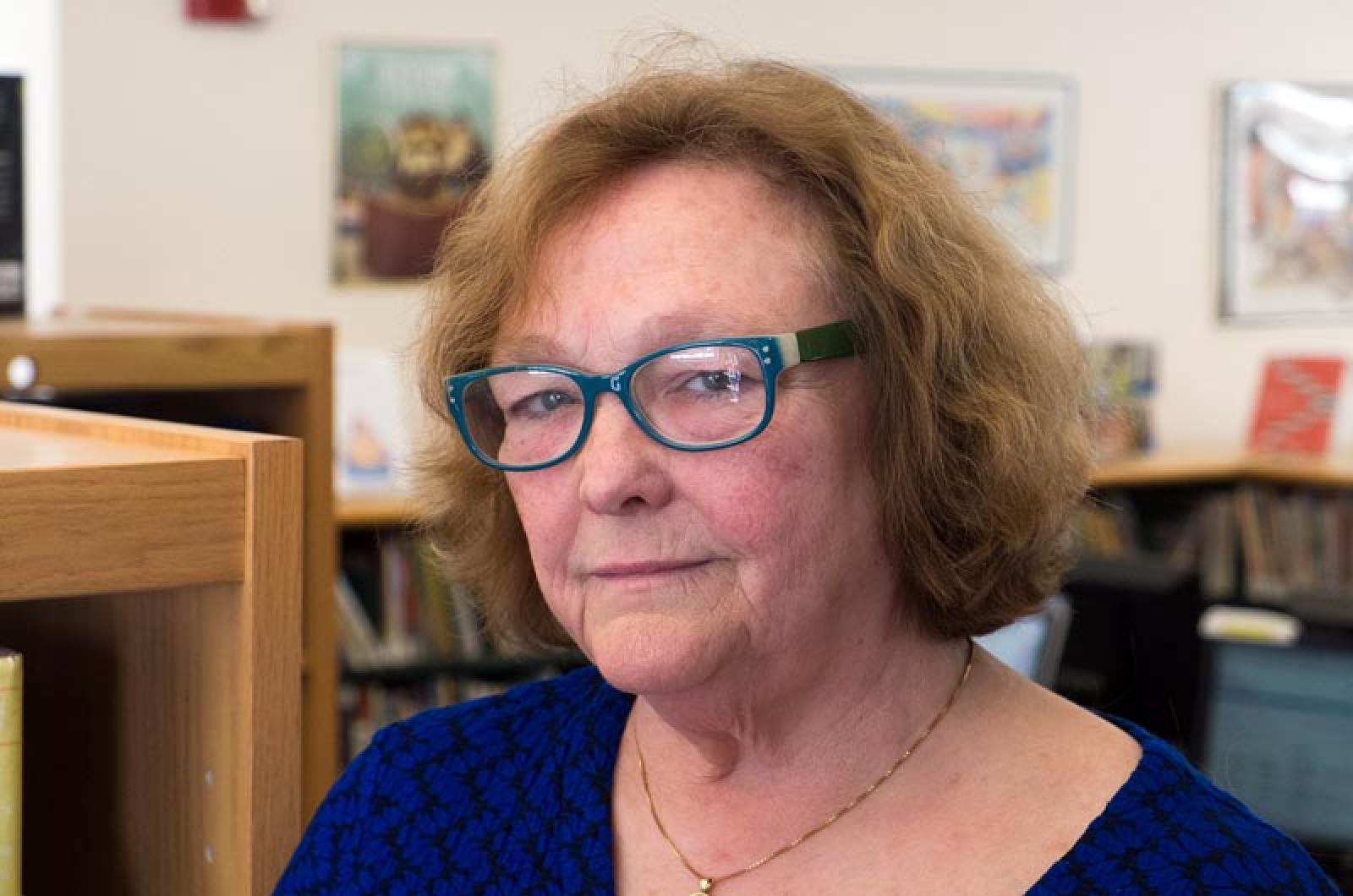Betty Burton recalls a five-year period many years ago when she had to move at least 13 times, along with her three kids and a dog, before finding a permanent home on the Vineyard. Affordable housing is perhaps the biggest and most obvious challenge to life on the Vineyard. But food security is another problem here, and one that Ms. Burton has tackled head-on over the last 23 years.
According to Feeding America, a national food bank network, food insecurity in 2012 affected 1,560 people in Dukes County, or 9.5 per cent of the population. The state average was 11.9 per cent and the national average was 15.9 per cent.
Many people don’t believe hunger exists on the Vineyard, said Ms. Burton, who returned last week from her first National Anti-Hunger Policy Conference in Washington, D.C.
Ms. Burton is a driving force behind several Island hunger initiatives, including Serving Hands, a year-round food distribution service supplied by the Greater Boston Food Bank, the Vineyard Committee on Hunger, which focuses largely on public outreach and community support, and the Island Food Pantry, which relies on local donations.
“Even in this community, where everyone thinks it’s all affluence, there is poverty,” she said.
The three-day conference, hosted by the national Food Research and Action Center, allowed her to network with people from around the country who are also working to address hunger in their communities, and to meet with state legislators, including Elizabeth Warren, Ed Markey and Jim McGovern.
Her trip was funded in part by a Feeding America scholarship, and airfare was provided by Cape Air. Her friends on the Island had collected some additional spending money before she left.
A recurring theme at the conference was the need for communities to advocate for the Supplemental Nutrition Assistance Program (SNAP), which lost $8.4 billion in funding last year and is in danger of further cuts.
“I came back with a new feeling of advocacy,” Ms. Burton said. “It’s always been important for me, but I came back really excited to start working on these projects.”
When Ms. Burton moved to the Island 23 years ago, she volunteered for Meals on Wheels, a national food assistance program. She then began volunteering at the Island Food Pantry, picking up food from donation sites around the Island. She now coordinates both the Serving Hands and Family to Family programs, and is president (again) of the Vineyard Committee on Hunger.
Through her position at the Vineyard Haven library, Ms. Burton knows many of the people who lack food or housing or both. Some of those people want to remain anonymous, so she does whatever it takes to make them feel comfortable using the donation services, even if it means pretending she doesn’t know them. But knowing people in general makes her job easier.
“It’s important to me to know the people on the Island who need help,” she said. “If you make it part of the community, then it’s not as embarrassing, as hard to walk in the door.”
In some cases, she said, the community has carried the idea of food assistance to a new level.
Family to Family, for example, began at Serving Hands in 2004 with the distribution of about 20 turkeys for Thanksgiving. But when demand outpaced supply, Ms. Burton began asking her friends for donations. By Christmas that year a new model had emerged, where families were donating $25 so other families could have a holiday meal. The program now runs during Thanksgiving, Christmas and Easter. The program benefitted about 250 families last Thanksgiving.
This year’s Easter Family to Family program will be March 27 at the First Baptist Church in Vineyard Haven.
Daybreak Clubhouse, which supports people with mental health issues, handles much of the routine work for Serving Hands, which is requiring more community support as it grows.
Food insecurity affects every town on the Island, Ms. Burton said. Even the towns that are considered more affluent present a major challenge for some year-round residents. For people struggling financially, the high cost of living on the Vineyard leaves them with even less money for groceries.
Those affected by food insecurity are often disabled or elderly, Ms. Burton said, and the need for programs like Serving Hands and the Island Food Pantry will likely increase as the population continues to age. A study by researchers at the University of Massachusetts Medical School predicts that 32 per cent of the Island population will be over 65 by 2030.
“Many people retire here, but we also just have an aging community,” Ms. Burton said. “So you put those two together and we’ve got a lot of people over 65.”
The need for affordable housing for young families will also increase, she added, in part because an aging population will require a larger caregiver workforce.
Despite the general sensitivity, she believed that increased outreach and awareness has helped reduce some of the stigma surrounding food insecurity on the Island. An hour-long episode of the PBS program Sesame Street in 2011, for example, featured families dealing with hunger, including one in Vineyard Haven. Ms. Burton had worked with the producer to organize the Vineyard segment.
For some people who have experienced poverty, she said, anonymity makes it easier for them to reach out to others. But a sense of community is largely what drives her work on the Vineyard.
“I thought about that a lot when I was away,” she said of her recent trip to Washington, D.C. “If I didn’t live on Martha’s Vineyard, would I do this work?” Her answer: “I would hope I would, but it wouldn’t be as easy. Here I know who the people are. After 20 years, they are just your neighbors who need help, and you try and step up for them if you can.”





Comments (4)
Comments
Comment policy »